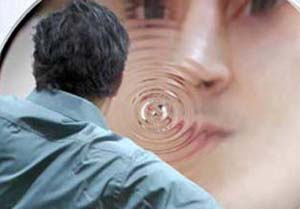 |
|
| Appunti universita |
|
 |
|
| Appunti universita |
|
| Visite: 1588 | Gradito: |
Leggi anche appunti:La Musica in Sant'AgostinoLa Musica in Sant'Agostino Le confessioni In the Confessions Augustine "Senza la musica, la vita sarebbe un errore" (F. Nietzsche) -tesina"Senza la musica, la vita sarebbe un errore" (F. Nietzsche) GRECO "I Messa musicale e prassi liturgica dal dopoguerra ad oggiMessa musicale e prassi liturgica dal dopoguerra ad oggi. Tre esempi d'autore: di primo |
 |
 |
 La Musica in Sant'Agostino
La Musica in Sant'Agostino
Le confessioni
In the Confessions Augustine recounts the tension he felt between the enjoyment of music and the problem of finding too much pleasure in earthly things. He admits that music could be for him serious distraction from the spiritual.
Nonetheless, in chapter ten, he assures the reader that was not completely enchanted by music. Following this warning about the danger of the allure of music and he describes the religious good that may come from music. When religious texts are sung well greater religious devotion is inspired.
" Aliquando enim plus mihi videor honoris eis tribuere, quam decet, dum ipsis sanctis dictis religiosius et ardentius sentio moveri animos nostros in flammam pietatis, cum ita cantantur, quam si non ita cantarentur, et omnes affectus spiritus nostri pro sui diversitate habere proprios modos in voce atque cantu, quorum nescio qua occulta familiaritate excitentur"
Augustine returns to its dangers and tells of how he had considered banning music from church completely to protect against improper enjoyment of it. In the end, however, he allows music in the churches since he acknowledges that it may inspire weaker minds to worship.
Elsewhere when discussing whether certain foreign ceremonies are acceptable for inclusion in Christian worship, Augustine commends both hymnody and psalmody as having been taught and practiced by Christ and the disciples. However he also accepts music only provided that it is used with restraint.
Music also plays an important part in Augustine's own account of his conversion. The voice in the Milanese garden that urged him to take up the volume of Saint Paul and to read was compared to a song in a child's game.
et ecce audio vocem de vicina domo cum cantu dicentis, et crebro repentenis, quasi pueri an puellae, nescio: tolle lege, tolle lege. statimque mutato vultu intentissimus cogitare coepi, utrumnam solerent pueri in aliquo genere ludendi cantitare tale"
In Confessions he reminisces about the impact that the music of the Milan church had on him in the early days after his baptism.
"Quantum flevi in hymnis et canticis tuis suave sonantis ecclesiae tuae vocibus commotus acriter! Voces illae influebant auribus meis et eliquabatur veritas in cor meum et exaestuabat inde affectus pietatis, et currebant lacrimae, et bene mihi erat cum eis"
Augustine tells of the immense personal anguish he experienced over Monica's death at Ostia. He was not able to find any consolation until he recalled the words of a hymn composed by Ambrose and a favourite of Monica, Deus Creator Omnium. Only after the words of that hymn came to mind did the tears of grief flow and was Augustine able to begin to be healed.
One sees from this that music was a formative influence upon Augustine in his conversion, his early post-baptism Christian life, and in times of personal crisis.
De Musica
Augustine wrote his treatise De Musica intending it to be part of a series of books on the liberal arts. The work on these studies on the liberal arts was begun in Milan in 387, but was finished only after Augustine's return to Africa. Augustine originally planned De Musica as a twelve book volume. The first six were to deal with rhythm and the second six were to deal with melody though the last six books were never written.
He knew of music's power to inspire religious devotion and was personally moved by music, yet he feared that music may draw people away from God through sensual pleasure. Augustine's De Musica may be viewed as an early attempt to justify both his personal attraction to music and the use of music in the church.
The science of music in Augustine's world concentrates on moral discernment through the study of number. According to Augustine, music is a science and as such is in the intellect.
In book one, Augustine defines music as a liberal art.
Books two through five are devoted to rhythm, meter and verse.
Book six then moves into the realm of metaphysics. The work is presented in the form of a dialogue between a teacher and pupil, utilizing a genre popular with many philosophers of the past. Book six of De Musica is concerned with sounds, which Augustine equates with numbers, and their relationship to the soul and the eternal realm.
In book six he divides sound into six classes. First are sounds which are corporeal and can exist alone. The second class (occursores) are those sounds that one actually hears with the ears. The third class (progressores) are sounds as they are active in a person. This class of sounds can move the body and the soul. This movement may be expressed through such activities as dancing or playing an instrument. The fifth and sixth classes of sounds depart from the corporeal realm of the first four and are found in the spiritual. Sounds belonging to the fifth class (numeri recordabiles) are those sounds which reside in one's memory and allow one to remember or reproduce a tune. The sixth class (numeri iudiciales) is that from which all the others are derived. Through this class one is able to judge sounds, and to distinguish good music from bad.
What does Augustine say about the relationship of music to the soul?
When sound comes in contact with the ear it is impressed upon the body. Augustine's idea is that the soul always seeks a balance of all the parts within the body. When something happens in the body the soul becomes aware that the balance has been disturbed. The sounding of music in the ear does just that. This causes a problem for Augustine who does not wish to say that the physical realm could ever influence the spiritual since that would make the spiritual subordinate to it. He resolves the problem by asserting that it is indeed the soul which initiates the action in the body: 'I believe, the soul does not receive from the body, but receiving from God on high it rather impresses on the body.'
The second part of book discusses ethical matters related to music. A major concern for Augustine in the De Musica is how one is able to discern good music. Good music, for Augustine, is not simply that which is aesthetically pleasing, but music which promotes proper ethic: perceive music or numbers in accord with God's truth.
Those who approach music only for sensual pleasure do so out of pride. Such pride leads the soul to fall away from contemplation of the higher spiritual things to the lower level of corporeality. As one focuses on bodily pleasure and neglects the contemplation of the divine numbers one is diminished and falls farther away from the One and into the lower numbers. 'There is a hierarchy of number from the One Himself down through the numeri. All music, good or bad, contains in some way the divine patterning.'
 |
| Appunti su: |
|
| Appunti Personalita |  |
| Tesine Poesia |  |
| Lezioni Arte cultura |  |